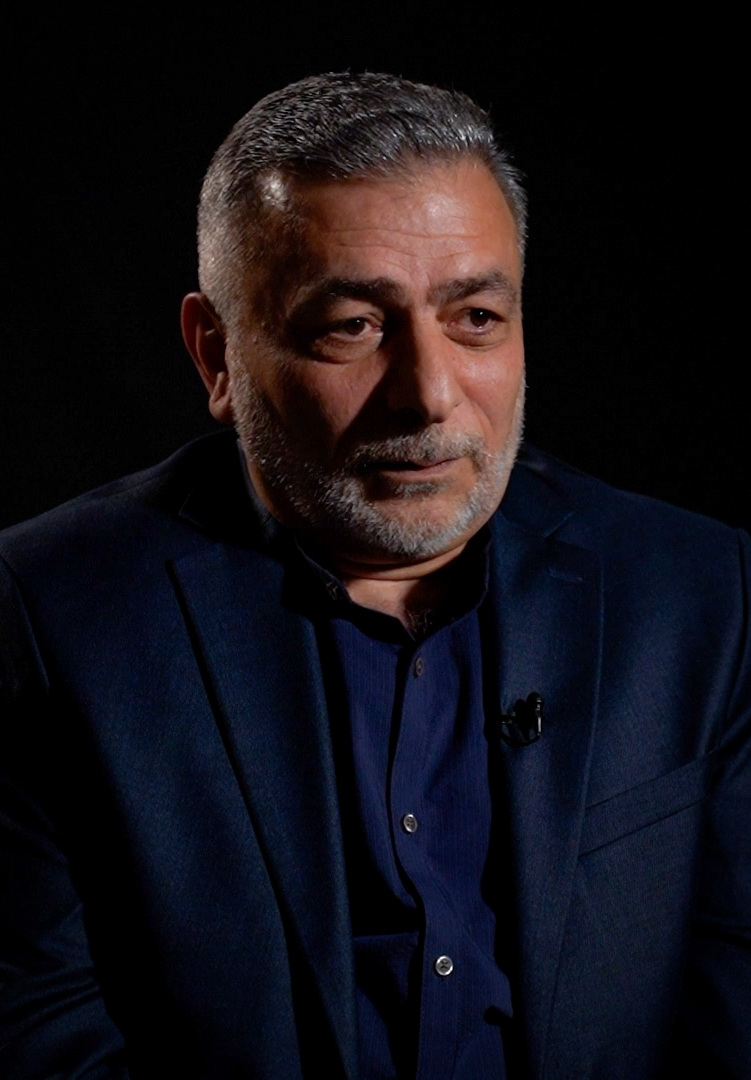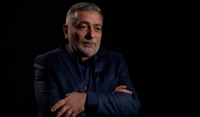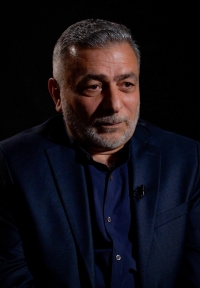The meeting was held in the pioneer palace of Shengavit. I was the moderator of that session. Quite a lot of people had already gathered. By the way, I must say that during the same period, before that, we had already opened a branch in Abovyan, and if I am not mistaken, probably in December, we had organized the concert of Ruben Hakhverdyan and Meschyan in the Palace of Culture. It was something, because together with the Abovyan boys, we had [distributed] flyers in the city...it wasn’t flyers, but posters, that were announcements that there would be a concert. We posted them on the walls, and the Komsomol ripped them off after us. We had to disseminate the posters like flyers in “Sirius” and other factories. The concert took place. But the interesting thing was that during those few months a youth movement was initiated, and the number of its members kept increasing, the number of people was always increasing. For example, at that time Movses Gyorgisyan and others from the National United Party met with us. They even wanted to disseminate the newspaper “Independence”, we said, “No! We have barely found a hall, they will not allow it anymore, wait for a different time.” Anyway, it is not that we were against the idea, but we were a bit more cautious, we thought that we can't do it with such quakes, we have to... At least I think so. Maybe if you had invited someone else from “Goyapaykar” he would have a different opinion. But that was my thinking at the time, that you don't need to go to confrontation, because... not because we were afraid for ourselves, 5 or 6 years ago we were ready to die for that idea, but because that consciousness was already there. That romanticism, I say, was already gone, because that martyrdom was not only a martyrdom for an idea, it was also a moment to keep people afraid for some time. Do you understand what I’m saying? We had to get rid of that psychology. The others, as I say, [were] different... That breakthrough from romanticism to becoming a little more realistic happened in me at that period, in the [19]87 when I returned from the army, and in the army as well. So, probably on February 16, we had a session in the pioneer palace in Shengavit, and the next day we already had a rally. Abovyan guys had organized it very well. They picked up the right time, that is, we chose the right time together, at 3-4 p.m., when the workers came out from “Sirius”, there was a huge crowd of people who went to the bus station, either those who came to work in those big factories from the villages of the region, or the ones who went for city buses, which also operated from there. So when we started the rally, not only the bus station was full of people, but also the work of the bus station was paralyzed, it just became a big problem. We didn’t even think that it was possible to do something like that. Then, the militia (back then it was not police, it was militia) came, people from the District Committee came, they convinced us to go to a more open place. After a couple of hours, we were somehow convinced, one could say, we went to the Palace of Culture, where the rally took place, the actual rally. The Secretary of the District Committee even brought a loudspeaker for the microphone to show how kind he was. We had a little quarrel there. He wanted us to enter the hall, we did not want to enter the hall. That's how the day passed. We ended the rally by saying that the next day the rally should be held near the biochemical factory. The number of people near the biochemical factory was 3-4 times higher than the previous day. I am saying 3-4 times higher, but there were really too many. The entire street was closed, the road leading to Byureghavan. The gates of the factory were closed, some were on the cars, some were on the fences. There was a moment when our technical capacity was not sufficient to talk to the masses. Provocation was easy. I say again, I am telling only my memories. It was not evident that even if we had spoken about something with the management, we would achieve something, they were not the decision makers, they were not the ones to decide to close it or not... We reached a situation when a solution had to be found. This is the realism I refer to, when you can take the right direction in a situation. And in that situation it was very easy to make a provocation. After the provocation, people could get hurt, and that entire thing we had organized would become a failure. That's why that decision was made. The first decision was as follows: to call journalists, because you are in front of that mass for the first time, you are responsible for them. But when someone went after the journalists, I came to Yerevan by taxi to inform journalists, because at that time there was no cell phone or anything, either you had to call somewhere with a phone, or you had no hope that he would do his job. I had learned from the guys of “Garun” editorial where they were: they called the editorial office of “Garun”. I don’t remember now who called. And they said that they are going down through Avan already. And the second decision was this: since this situation has arisen, there is no solution, let’s walk to Yerevan, then, to the headquarters of the Central Committee, I don’t know, we would decide on the way, but at least we would not allow a provocation. And during the march it would be easy to control the situation. In this way, Abovyan marched in a huge mass to the Opera Square, and from there to the Government Building. Already in the government building, I have a difficulty to recall if they had accepted our delegates or not.


